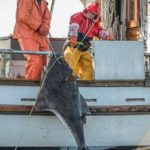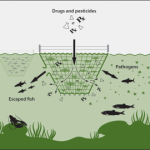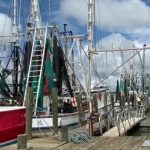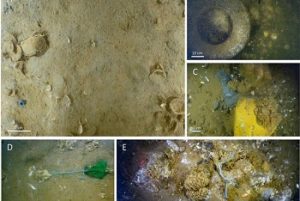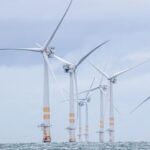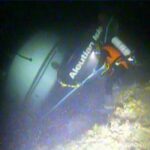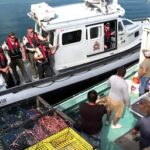Tag Archives: “sustainability.”
Red herring? Facing off over the sustainability of B.C.’s herring fishery
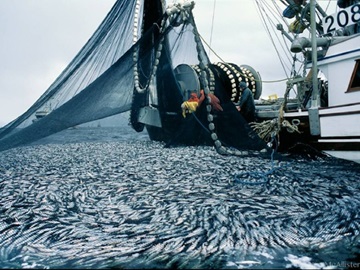 Calls for a last-minute moratorium are intensifying as the start of Pacific herring season in the Straight of Georgia approaches on Nov.24. Concerns are resurfacing among some citizens as they fear the potential impact of these fisheries on the province’s herring stock. According to Jim Shortreed, a Victoria-based herring enhancement volunteer, these numbers are unsustainable. When asked what would be the ideal biomass, the marine specialist couldn’t define the exact number. Ronnie Chickite, elected Chief of the region’s We Wai Kai Nation and herring fisherman with nearly three decades of experience, disagreed with Dixon’s assessment. >>click to read<< 08:52
Calls for a last-minute moratorium are intensifying as the start of Pacific herring season in the Straight of Georgia approaches on Nov.24. Concerns are resurfacing among some citizens as they fear the potential impact of these fisheries on the province’s herring stock. According to Jim Shortreed, a Victoria-based herring enhancement volunteer, these numbers are unsustainable. When asked what would be the ideal biomass, the marine specialist couldn’t define the exact number. Ronnie Chickite, elected Chief of the region’s We Wai Kai Nation and herring fisherman with nearly three decades of experience, disagreed with Dixon’s assessment. >>click to read<< 08:52
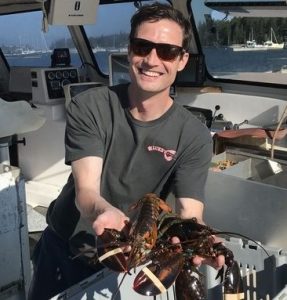
As Luke’s Lobster grows, its owner keeps an eye on sustainability
“It all starts with the fishermen,” he said. “Without them, we don’t have the great product to sell in our restaurants or through our retail partners. We’re a certified B Corporation, so it’s in our DNA to look for the win-win as we grow the business.”The co-op partnership model began in 2016, shortly after Tenants Harbor fishermen and Holden founded the Tenants Harbor Fisherman’s Co-op on Miller’s Wharf, according to a company news release. At that time, Holden started a restaurant on Miller’s Wharf and began returning 50% of the profits from the restaurant back to the co-op. >click to read<14:28
Fishermen-heavy crowd shows frustration with catch rules, monitoring costs at RI forum
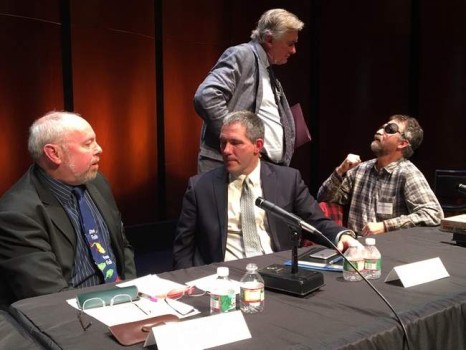 A forum on the sustainability of the commercial fishing industry revealed significant frustration in a fisherman-heavy crowd and a few suggestions for future changes, but little tangible optimism, Thursday night at Rhode Island College. “Right now, there are more fish in the Atlantic Ocean than there was 20 or 30 years ago — we are just not allowed to catch them anymore,” said fisherman Mark Phillips, a New York native who has fished out of New Bedford for several decades. Phillips and New Hampshire fisherman David Goethel, who sued the National Oceanic and Atmospheric Administration (NOAA) in December over catch monitoring costs, were the two fishermen on the forum’s six-person panel. Read the story here 05:53
A forum on the sustainability of the commercial fishing industry revealed significant frustration in a fisherman-heavy crowd and a few suggestions for future changes, but little tangible optimism, Thursday night at Rhode Island College. “Right now, there are more fish in the Atlantic Ocean than there was 20 or 30 years ago — we are just not allowed to catch them anymore,” said fisherman Mark Phillips, a New York native who has fished out of New Bedford for several decades. Phillips and New Hampshire fisherman David Goethel, who sued the National Oceanic and Atmospheric Administration (NOAA) in December over catch monitoring costs, were the two fishermen on the forum’s six-person panel. Read the story here 05:53
Walleye Pollock – A bounty of fish: Questions about sustainability

It sounds too good to be true: There are so many fish that Seattle-based boats haul in more than a million metric tons of them every year without depleting the population. “It still boggles my mind how much is a million tons of fish,” says David Fluharty, an associate professor at the University of Washington School of Marine and Environmental Affairs. “To actually catch that much protein . . .”more@crosscut 07:17
Saving Seafood Special Report: U.S. Seafood: Ratings and Realities
 (Saving Seafood) August 1, 2013 — When the National Park Service (NPS) announced it would utilize third party seafood ratings and certification programs to set guidelines for vendors offering seafood options within U.S. National Parks, the agency revived a debate surrounding the eco-certification of U.S. seafood. Tomorrow, NPS is meeting with NOAA in an attempt to reconcile concerns and ensure that its new sustainable seafood guidelines aren’t detrimental to fishermen, processors, and consumers alike. continued here
(Saving Seafood) August 1, 2013 — When the National Park Service (NPS) announced it would utilize third party seafood ratings and certification programs to set guidelines for vendors offering seafood options within U.S. National Parks, the agency revived a debate surrounding the eco-certification of U.S. seafood. Tomorrow, NPS is meeting with NOAA in an attempt to reconcile concerns and ensure that its new sustainable seafood guidelines aren’t detrimental to fishermen, processors, and consumers alike. continued here


































